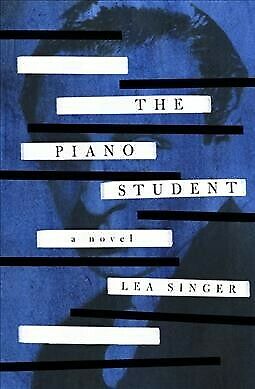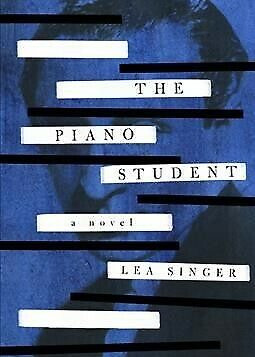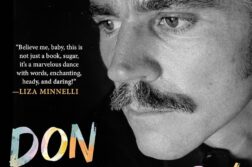 THE PIANO STUDENT
THE PIANO STUDENT
by Lea Singer
Translated by Elisabeth Lauffer
New Vessel Press. 230 pages, $16.95
THE ILLICIT LOVE AFFAIR of world-famous piano virtuoso Vladimir Horowitz and the less successful pianist Nico Kaufmann is recreated vividly in Lea Singer’s The Piano Student. Over the course of their relationship, Horowitz and Kaufmann exchanged love letters, some with highly erotic content—which they both agreed to burn after reading them. Horowitz kept to this promise, but Kaufmann did not. Singer has taken these letters, which were discovered in Switzerland, and used them to reconstruct the affair in a work of fiction.
The story is set in 1986, where we find Kaufmann spending the final years of his career playing piano at the Baur au Lac in Zurich. It is here that Reto Donati, a melancholic Swiss diplomat, comes in and asks Kaufmann to play the short composition Träumerei by Schumann, a piece he had heard the great Horowitz play years earlier. Kaufmann and Donati strike up a conversation, which ultimately leads to Kaufmann’s divulging his long-ago affair with Horowitz.
Jumping back and forth between 1986 and 1937, Kaufmann recounts to Donati the causes and effects of his affair with Horowitz, who was then 33, twelve years Kaufmann’s senior. Interestingly enough, in this telling Singer uses no quotation marks as she chronicles dialogue between the characters, challenging the reader to determine what is fictional narrative, interior monologue, or actual dialogue. Kaufmann was first introduced to Horowitz through an artist friend. After an informal tryout, he was told by Horowitz that he had musical talent but wasn’t much of a pianist. Horowitz was leaving on vacation in Lucerne and invited Kaufmann to join him there for piano lessons. Kaufmann agreed, and the affair began with a kiss. Under the guise of a teacher-student relationship, the pair was able to meet and continue their undercover trysts all across Europe. Secrecy was of utmost importance, since Horowitz was a closeted homosexual married to Wanda Toscanini, daughter of the famed conductor Arturo. Horowitz liked quiet places of retreat from his concert schedule, while Wanda hated such seclusion, preferring Paris or Rome. Theirs was a marriage of convenience, to be sure. For Horowitz, marriage to the famous conductor’s daughter elevated his station in the musical world and disguised his homosexuality. For her, marriage to the world’s greatest pianist offered a status commensurate with that of daughter of the world’s greatest conductor. It was a difficult life for Horowitz. He had a continual fear of rejection because of his sexual desires. His marriage to Wanda was by all measures a disaster, what with his father-in-law continually undercutting his exceptional talent. His life was a continual battle of trying to balance his public married self with his closeted homosexual self. Meanwhile, it seems clear that he accepted Kaufmann as a student, not out of any belief in his musical potential, but solely because his sexual attraction to the younger man. The Horowitz-Kaufmann affair took place between 1937 and 1939 in the tumultuous years before World War II. Singer ably describes the fraught political times, including the growing hatred directed toward Jews and homosexuals. Kaufmann and Horowitz were members of two clandestine social networks of homosexuals in Switzerland—“Kreis 4” and “The Circle.” One night, after returning from dinner, the pair found a newspaper article on the nightstand that stated: “Homosexuals are a dangerous manifestation of degeneracy. Heinrich Himmler has announced a campaign to combat this threat to the master race.” There was also a handwritten note in the margin from one of their friends from The Circle that read: “Apparently being Jewish isn’t enough for them, he says about people like us. He hates that fact he can’t have gay Jews liquidated twice over.” Wanda soon grew frustrated and tired of her husband’s affairs and forced him, on threat of suicide, to end all romantic involvements outside the marriage. Still, Horowitz and Kaufmann were able to meet several more times before Horowitz emigrated to America in 1939. We know what happened to Horowitz and his career after that. Kaufmann went on to have a modest but limited career as a composer and a performer. Singer has written a compelling story, interweaving history, music, and psychological intrigues that accompany purposely hidden romantic involvements. The reckless abandon and passion that became Horowitz’ public persona were also manifested privately, in other ways, through a little-known affair that helped shape his personal identity. ____________________________________________________






